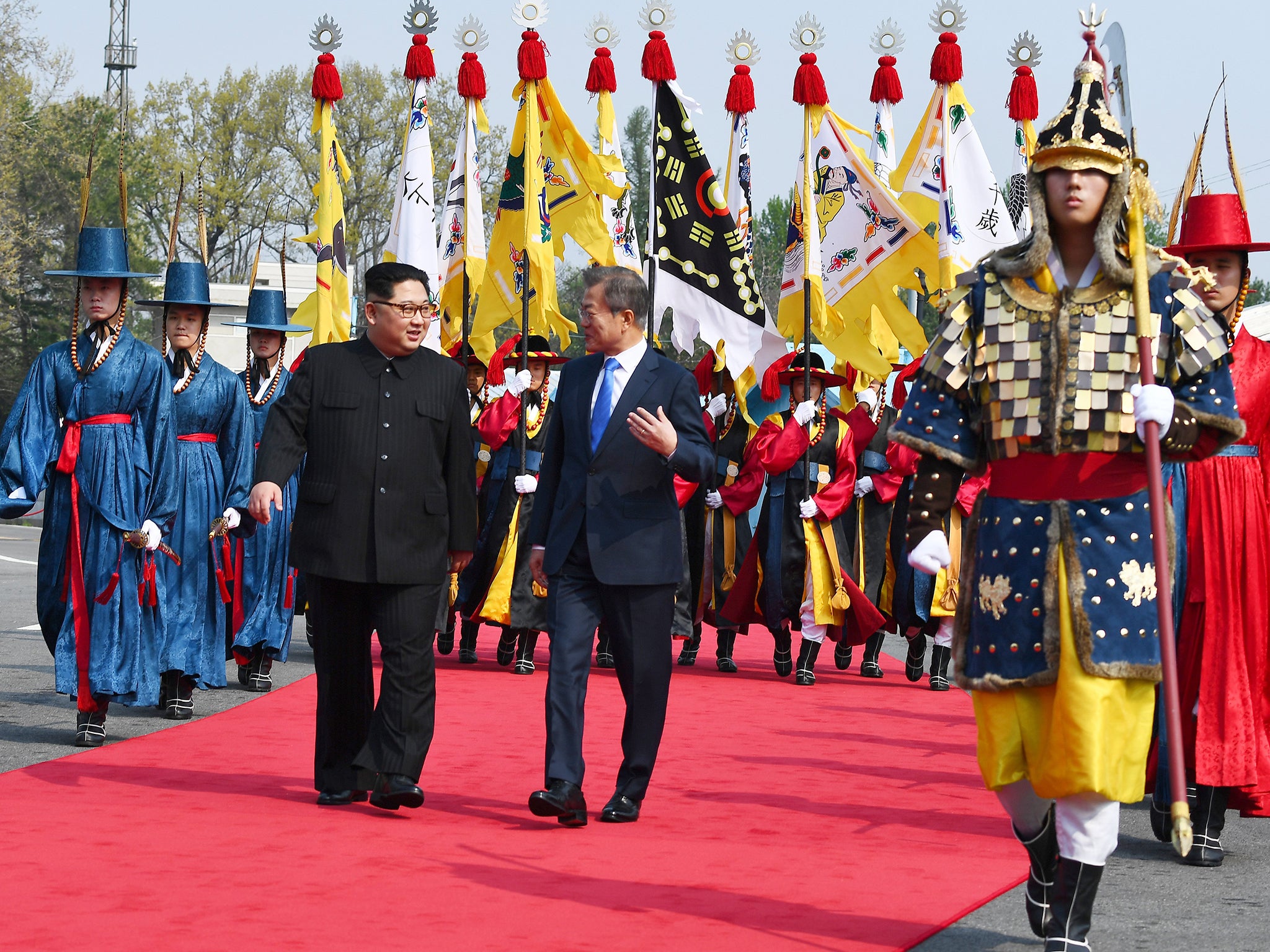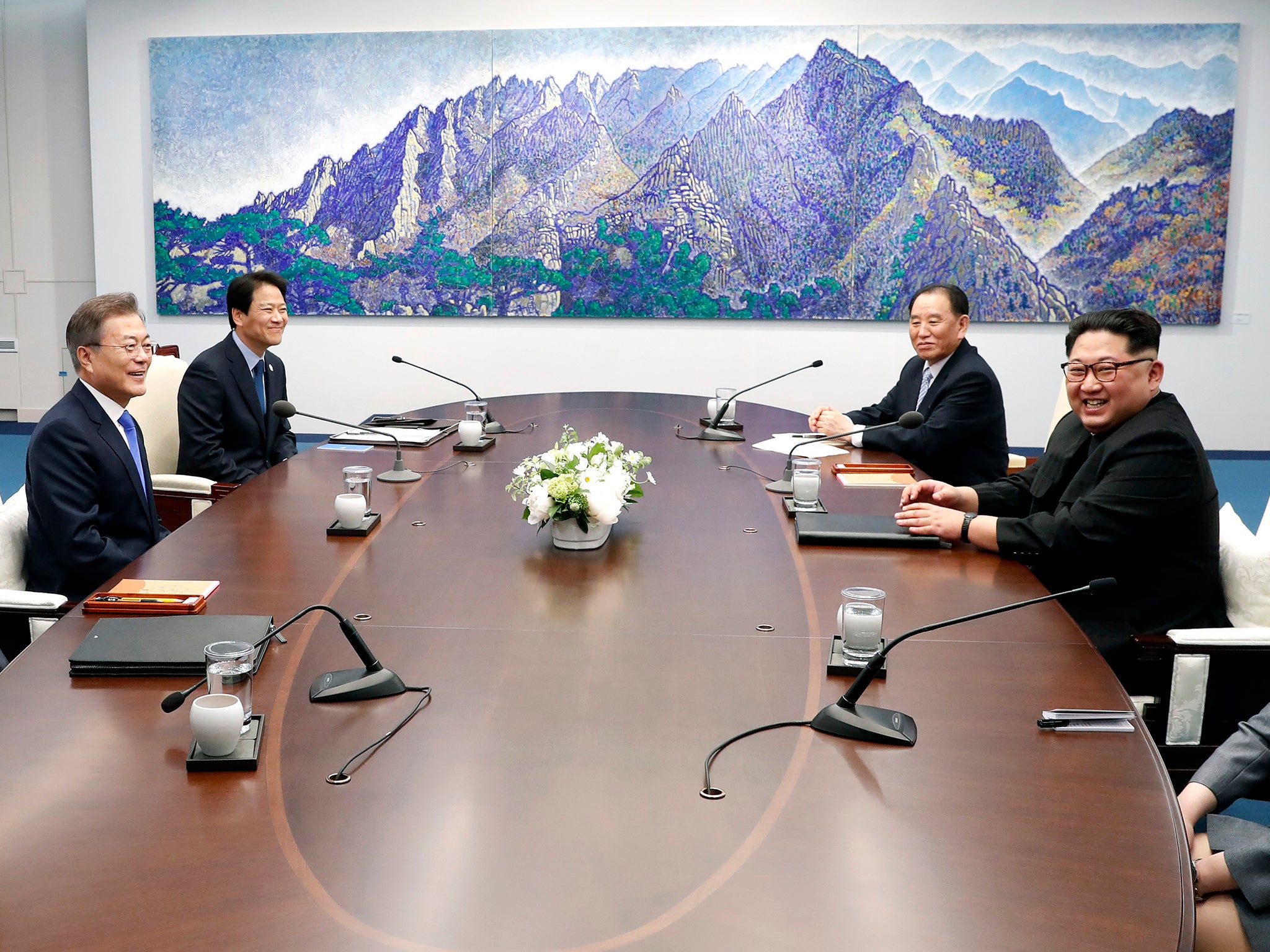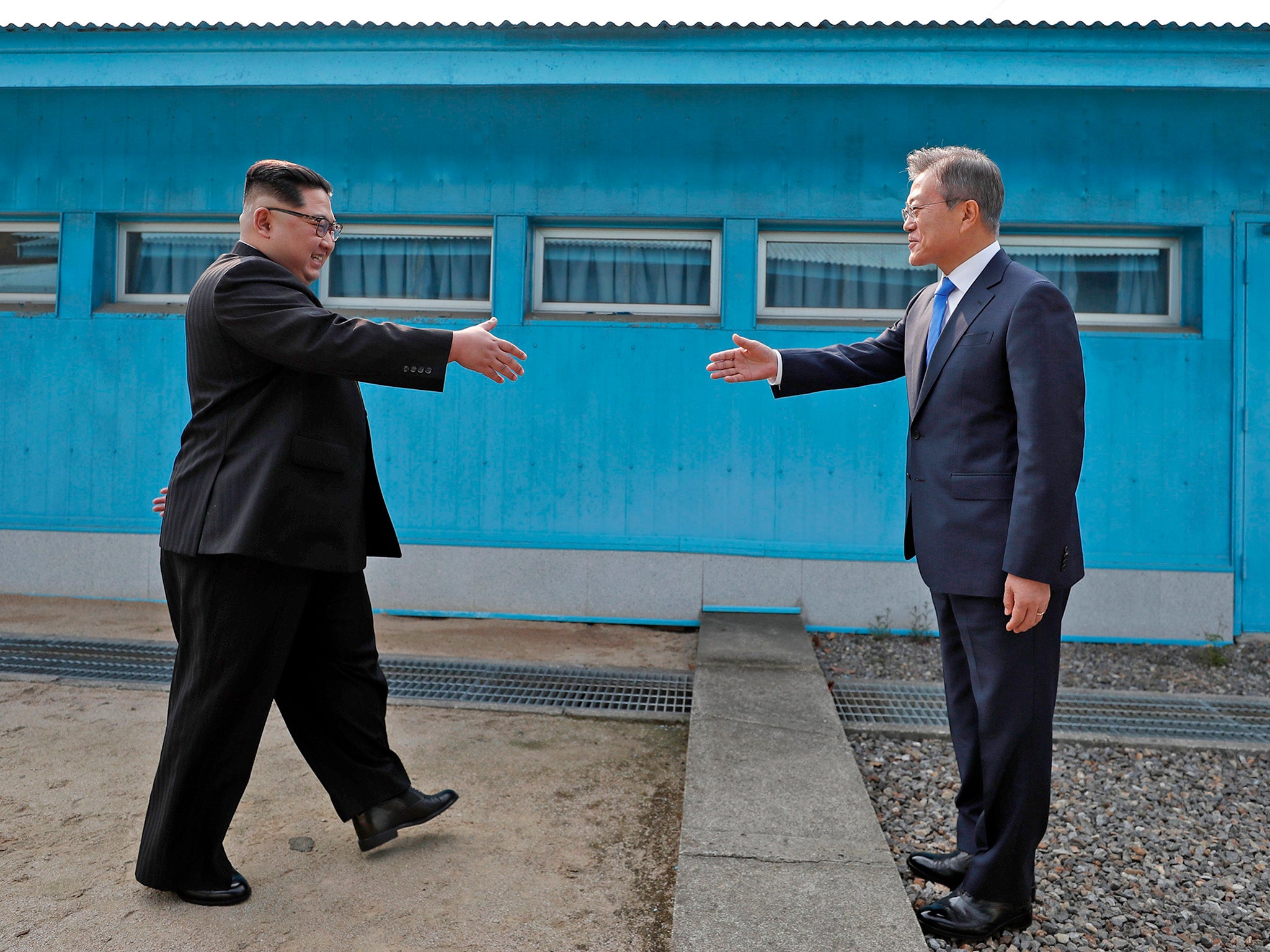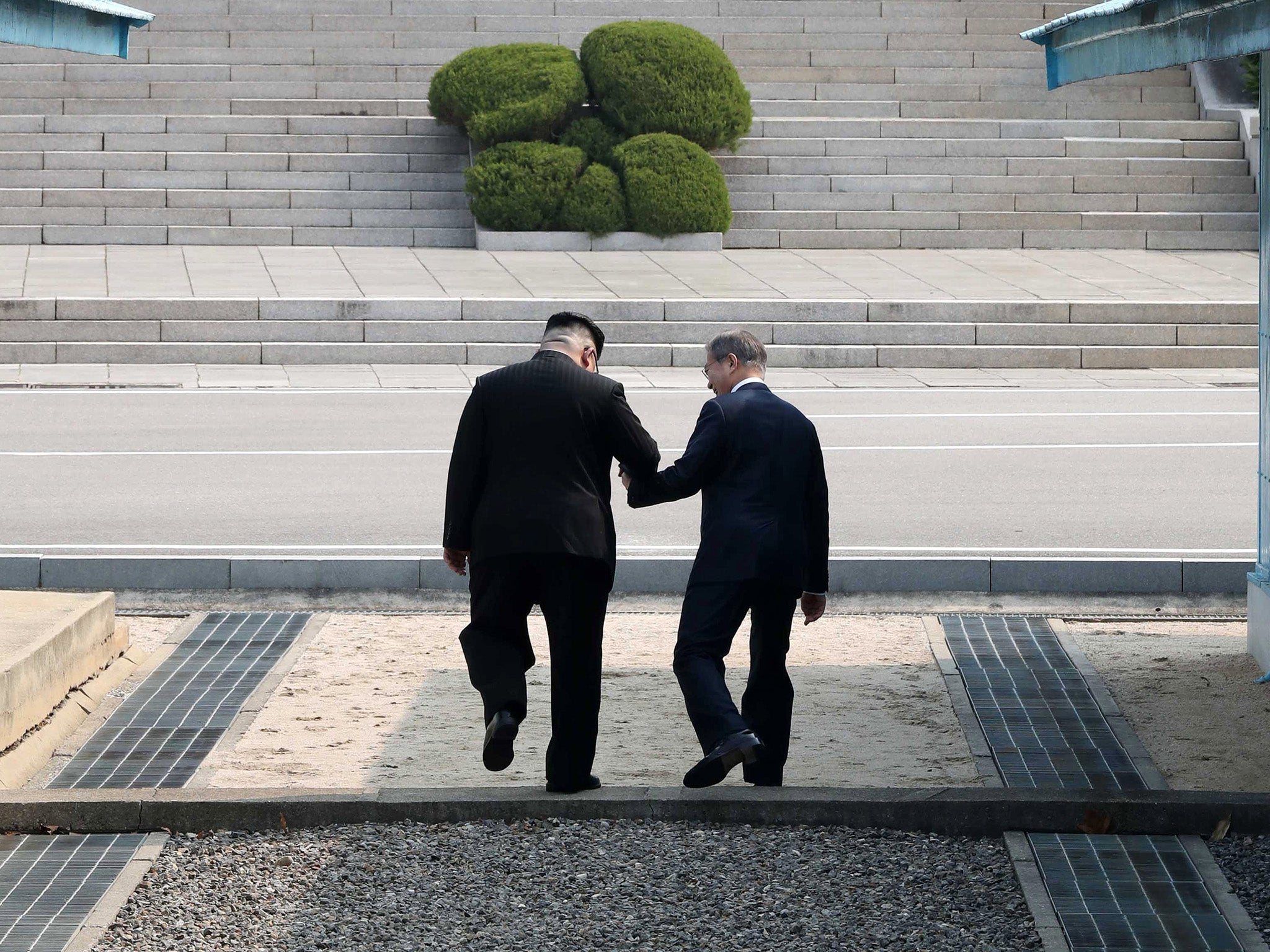Korean War to be declared officially over after 68 years, following historic summit
Leaders Kim Jong-un and Moon Jae-in say neighbouring countries will turn fortified border into a 'peace zone'
Your support helps us to tell the story
From reproductive rights to climate change to Big Tech, The Independent is on the ground when the story is developing. Whether it's investigating the financials of Elon Musk's pro-Trump PAC or producing our latest documentary, 'The A Word', which shines a light on the American women fighting for reproductive rights, we know how important it is to parse out the facts from the messaging.
At such a critical moment in US history, we need reporters on the ground. Your donation allows us to keep sending journalists to speak to both sides of the story.
The Independent is trusted by Americans across the entire political spectrum. And unlike many other quality news outlets, we choose not to lock Americans out of our reporting and analysis with paywalls. We believe quality journalism should be available to everyone, paid for by those who can afford it.
Your support makes all the difference.The Korean War will be formally declared over after 68 years, the North and South have said.
At a historic summit between leaders Kim Jong-un and Moon Jae-in, the neighbouring countries agreed they would work towards peace on the peninsula with a formal end to the conflict set to be announced later this year.
The pair agreed to bring the two countries together and establish a "peace zone" on the contested border.
The war began in 1950 and most fighting came to an end with an armistice three years later. But peace was never officially declared and the two countries have been officially at war ever since.
At their first summit in more than a decade, the two sides announced they would seek an agreement to establish "permanent" and "solid" peace on the peninsula.

"The two leaders declare before our people of 80 million and the entire world there will be no more war on the Korean peninsula and a new age of peace has begun," the official declaration said.
The statement included promises to pursue military arms reduction, cease "hostile acts," turn their fortified border into a "peace zone," and seek multilateral talks with other countries, such as the United States.
North Korean leader Mr Kim and South Korean President Moon announced after their summit on Friday that the Koreas would push for three-way talks including Washington or four-way talks that also include Beijing on converting the armistice into a peace treaty and establishing permanent peace on the Korean Peninsula.
The Koreas said they hope the parties will be able to declare an official end to the war by the end of this year. Mr Moon is also expected to visit Pyongyang sometime this autumn, though it is not clear whether that event will include the official end of the war.
Responding to the summit, Donald Trump said he looked forward to his meeting with Mr Kim and expressed hope it would be productive.
But he added: "We will not repeat the mistakes of past administrations. Maximum pressure will continue until denuclearisation occurs."

And UK Foreign Secretary Boris Johnson, speaking at Nato headquarters, told reporters he was “very encouraged” by the summit, but added: “I don’t think that anybody looking at the history of North Korea’s plans to develop a nuclear weapon would want to be over-optimistic at this point.
“But it is clearly good news that the two leaders are meeting.”
China, North Korea’s sole major ally, also welcomed the meeting. A foreign ministry spokeswoman said it was a chance to expand into a “new journey of long-term peace and stability on the peninsula”.
The announcement came amid a friendly mood at the border.
Mr Kim joked during the summit that he would no longer interrupt his counterpart’s sleep with early morning missile tests.
As the pair shook hands on the southern side, Mr Moon asked Mr Kim: “You have crossed into the South, but when do I get to go across?”

Footage of the meeting showed his hesitant reaction as the North Korean leader replied: “Why don’t we go across now?”
Hand-in-hand they stepped briefly into North Korea before continuing southward shortly after 9.30am local time.
On the streets of Seoul, South Koreans watched in anticipation, some cheering, others weeping.
“This is unbelievable,” said Kim Ji-su, a teacher, watching breathlessly as Mr Moon escorted Mr Kim past rows of soldiers garbed in ancient Korean dynasty costume and standing at attention on either side of the red carpet leading to Peace House, where the two would be holding a summit that everyone seemed to agree was “historic.”
“I never thought I would see this in my life time,” Ms Kim gushed over the performance being enacted before her on all Korean television channels. “I can’t help crying.”

Lee Sung-bin, 17, saw one great benefit of North-South reconciliation.
”I hope peace comes soon,” he said. “Then I won’t have to join the army."
However the two leaders were vague when it came to the details of “denuclearisation” – a problem for those who saw Mr Moon essentially falling for Mr Kim’s charm offensive.
“They didn’t get any agreement on anything,” said Maeng Ju-seok, a businessman.
“North Korea promises denuclearisation, but there’s nothing. The government gave up a lot for nothing in return.”

Join our commenting forum
Join thought-provoking conversations, follow other Independent readers and see their replies
Comments